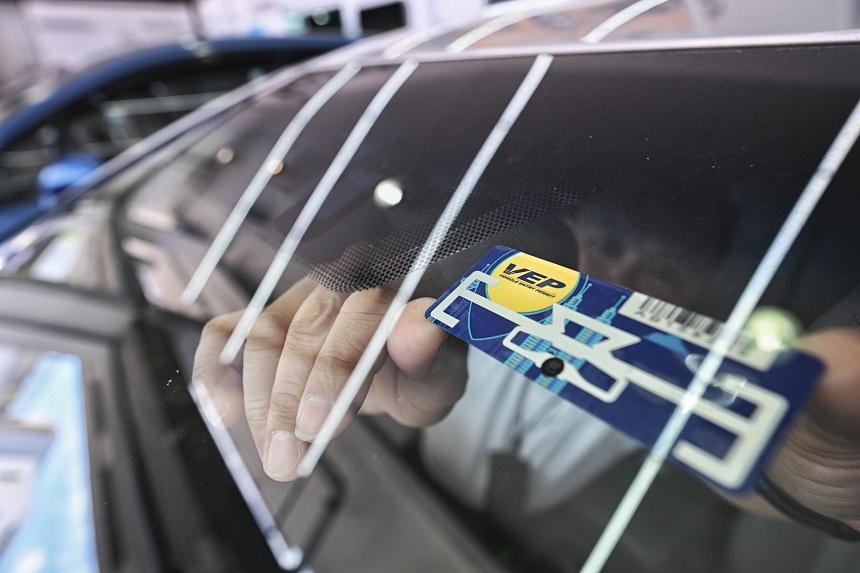SINGAPORE – Singapore car rental company Lumens began applying to register its fleet of cars for the Vehicle Entry Permit (VEP) in earnest in May, when the Malaysian government announced that it would be compulsory for foreign-registered vehicles entering the country from Singapore from Oct 1.
Getting the bulk of its fleet of more than 5,000 rental cars registered for VEP took the company around three months. It has three employees dedicated to handling the applications and ensuring that the digital confirmation slips are given to the hirers of the corresponding vehicles.
These cars are rented out for as short as a day, or are leased for up to three years or longer. Among the hirers are drivers of ride-hailing services who go into Malaysia for short trips, tourists and others who need a car to visit relatives across the border or for business.
The application confirmation slip proves that the rental car is VEP-registered. Unlike with private cars, where the permit application process involves getting a radio frequency identification (RFID) tag, rental cars fall under vehicles for commercial use, which currently are not required to have the tag installed.
This was according to an e-mail response to the Vehicle Rental Association (VRA) in July from the Malaysian government agency in charge of the roll-out of the registration regime. The Straits Times has reached out to Malaysia’s Transport Ministry for details.
According to VRA president Andrew Chan, around 60 per cent of association members’ rental cars have the confirmation and so can be driven into Malaysia on Oct 1.
VRA is a registered society representing around 50 rental companies in Singapore. Its members have a combined fleet size of between 15,000 and 20,000 rental cars.
On Sept 27, three days before the roll-out of the VEP requirement, Malaysia’s Road Transport Department announced that foreign-registered vehicles that have yet to install VEP tags by the Oct 1 deadline will still be allowed to enter the country from Singapore.
But vehicle owners entering Malaysia may receive reminders to do their VEP registrations. They will also be issued warnings upon exiting Malaysia, if the tag is not installed.
Mr Chan said that being considered commercial vehicles, rental cars have to register for VEP but do not need to obtain the RFID tag. The rental vehicles also do not have to be linked to the e-wallet of the Touch ‘n Go app, which is part of the registration process for private cars. This enables the tolls to be paid through the RFID tag.
Drivers of rental cars who have only the registration confirmation slip have to use the physical Touch ‘n Go card to pay for tolls.
A Lumens spokesman said that the online registration process for VEP was relatively straightforward and the confirmation slip from the registration was given instantaneously.
However, the firm did face issues for 1,000 or so cars in its fleet that are used and which Lumens had bought from other companies.
These cars were already VEP-registered by the previous owners. The permits are not transferrable, and it is not possible for Lumens to update the ownership details. The only way is to e-mail the Malaysian government agency to deregister the cars before the company can do a fresh registration.

